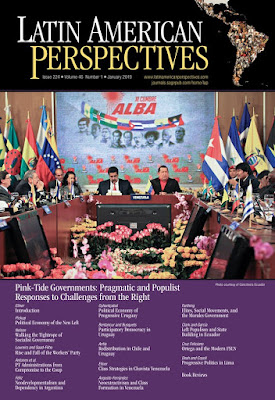Left Populism, State Building, Class Compromise, and Social Conflict in Ecuador’s Citizens’ Revolution
After Rafael Correa’s 2006 presidential election in Ecuador the governing party of Correa’s Citizens’ Revolution, Alianza PAIS, consolidated political power by undertaking an unprecedented process of state building in the country’s chronically fragmented polity. An analysis of the political and economic strategies it employed emphasizes their mutually reinforcing dynamic. The Alianza PAIS was a “big-tent” party with a vanguard of figures from the traditional political left that relied on brokerage with traditional political bosses at the regional and local levels to achieve political party nationalization. The Correa government was able to consolidate political power because it upheld its initial electoral commitment to abandon orthodox neoliberalism, rebuild the state, and advance social citizenship. The division between Correa and Lenín Moreno after the April 2017 elections and the subsequent implosion of Alianza PAIS put the legacy of the Citizens’ Revolution at risk.
CONTINUE READING THE FULL ARTICLE HERE


No comments:
Post a Comment